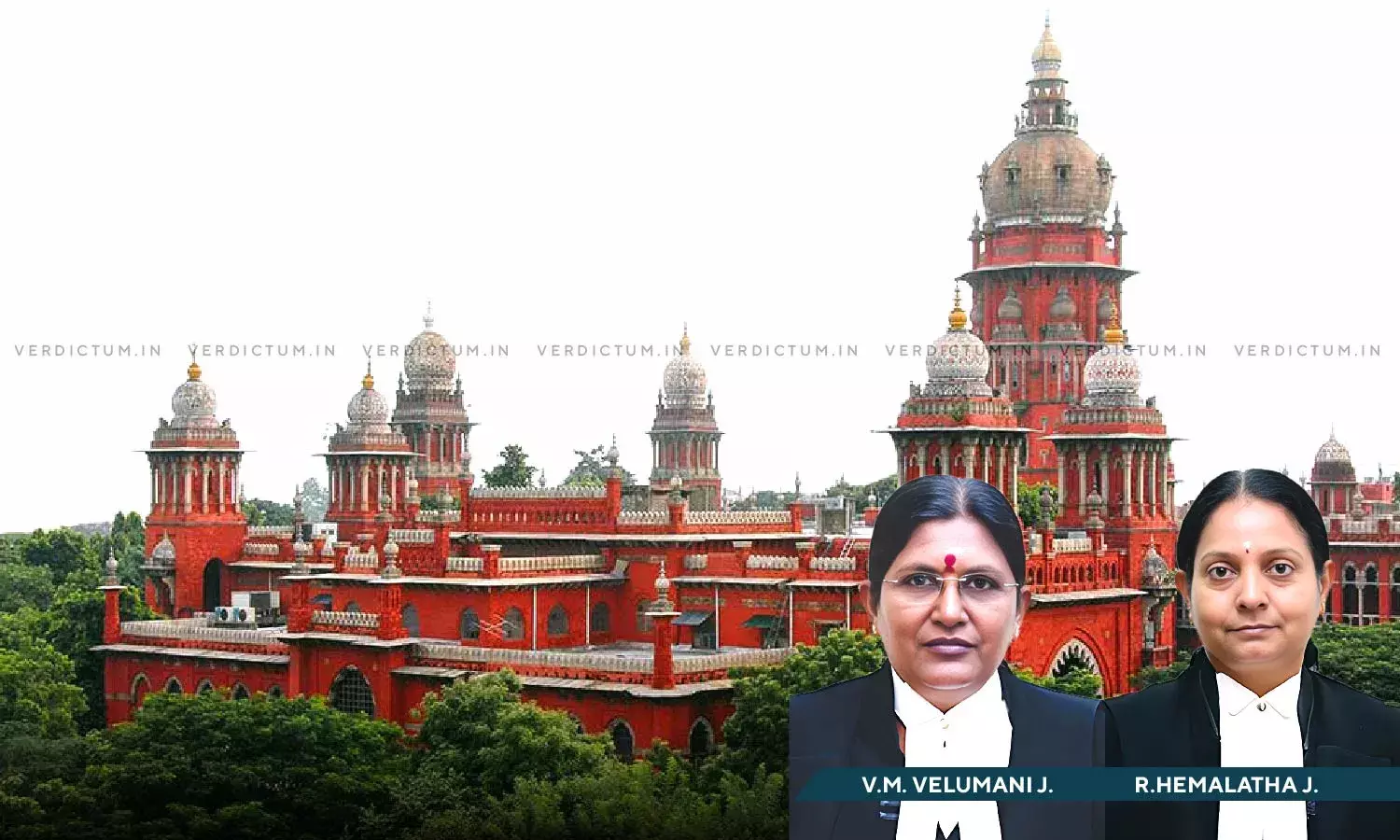"Every Instance Of Casual Police Inquiry Cannot Be Termed As Human Rights Violation"- Madras HC Quashes SHRC's Order

A Madras High Court Bench of Justice VM Velumani and Justice R Hemalatha has held that every instance of casual police inquiry cannot be termed as human rights violation.
The Court observed, "There are instances. But every instance of a casual police enquiry cannot be termed as human rights violation. The awareness amongst public is also lacking. They do not differentiate between civil and criminal matters. More sensitisation of the police force in such matter is required. Police force play a vital role in maintaining law and order."
The Bench also held, "without any allegations of harassment or threat by the police, such conclusions regarding human rights violations as concluded by the State Human Rights Commission, Chennai, would put the entire police force on defence mode. The petitioner is not accused of any coercive method. The complainant's grievances have been resolved ultimately."
In furtherance of the same, the Court also stressed that "every instance of a casual police enquiry cannot be termed as human rights violation."
Counsel D Selvam appeared for the Petitioner. Counsel S Wilson and Government Advocate RL Karthika, among others, appeared for the Respondents.
In this case, an Assistant Commissioner of Police approached the Court, challenging an order of the State Human Rights Commission. The order of the SHRC was made in response to a complaint, where it was contended that the Petitioner had colluded with third parties and forced the Complainant to arrive at a settlement with respect to some money pending towards him.
On hearing the parties, the Court observed that "The subject of Human Rights Violation is such a sensitive one wherein careful scrutiny and analysis have to be done before holding that there has been an instance of Human Rights Violation. Human Rights Violation includes arbitrary deprivation of life; torture, cruel or degrading treatment or punishment; slavery and forced labour; arbitrary arrest or detention; arbitrary interference with privacy; war propaganda; discrimination; and advocacy of racial or religious hatred."
The Court noted that for deciding human rights violations, there must be conclusive proof. In light of the same, the Court said that "There is a very thin line between human rights violation and regular police enquiry."
Further, the Court noted that the Complainant had the habit of landing himself into financial problems on his own volition by lending money. It was also observed that the Complainant had the habit of approaching different police stations with different advocates and insisting on registering FIRs.
Subsequently, the Court held that "It is clear from the contents of the report that the complainant was not a victim of human rights violation. He was neither detained illegally nor subjected to any mental harassment or torture."
Consequently, the writ petition was allowed and the orders passed by the SHRC were quashed. No orders were passed as to costs.
Cause Title: Lakshmanan vs The Secretary of State Human Rights Commission & Ors.
Click here to read/download the Judgment

